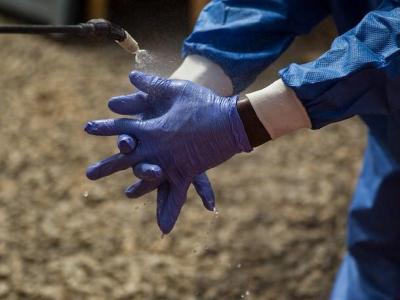May 18, 2009 (CIDRAP News) – As the World Health Organization (WHO) convened its annual meeting today, several countries urged the agency to use caution in weighing whether to declare a full-scale pandemic, despite signs that the novel H1N1 influenza virus is now spreading in Japan.
WHO Director-General Dr. Margaret Chan seemed to signal that she was listening to the suggestions that the agency go slow on raising its pandemic alert from the current phase 5 to phase 6, according to the text of her address at the World Health Assembly (WHA) in Geneva.
"I have listened very carefully to your concerns this morning," Chan said. "As the chief technical officer of this organization, I will follow your instructions carefully, particularly concerning criteria for a move to phase 6, in discharging my duties and responsibilities to member states."
With the novel H1N1 virus spreading widely in the United States and Mexico, the current pandemic alert level is phase 5, meaning community outbreaks are occurring in more than one country in one WHO region.
But cases in Japan jumped from 4 to 129 over the weekend, signaling possible community spread in a second region. In the current WHO system, that would mean it's time to declare phase 6, a full-scale pandemic.
"We remain in phase 5 today," Chan said in her address. "The virus may have given us a grace period, but we do not know how long this grace period will last. No one can say whether this is just the calm before the storm."
WHO officials last week emphasized that the pandemic alert phases are based on how widely a virus is spreading, not on how severe the illness is or how great the possible impact on society.
Officials worry about sowing panic
At today's opening WHA session, China, Britain, Japan and other countries urged the WHO to be cautious about declaring a pandemic, expressing concern that the move could lead to panic and confusion, the Associated Press (AP) reported.
British Health Minister Alan Johnson was the leading voice for caution, according to the AP. He warned that moving to phase 6 could unnecessarily trigger costly and risky actions such as switching from production of seasonal flu vaccine to pandemic vaccine, even though the virus so far seems mild.
Johnson asserted that a pandemic declaration should in part reflect the severity of the disease, not just its geographic extent, the AP reported. "It's very important that that's reflected in your ability as to whether to move from 5 to 6," he said. "So I would like to propose that you have more flexibility in that rather than follow a mechanistic process."
Johnson was backed by New Zealand, Switzerland, and the head of the Pan American Health Organization, according to an Agence France-Presse (AFP) report.
According to a Reuters report, Chan replied to Johnson, "You are requesting me before we move to phase 6 to put in place other factors to consider. I take on board your request to me but I would like to get guidance and advice from other member states on how we move forward."
Mexico, which has had the most deaths from the new virus, was also among the countries urging the WHO to move slowly, according to the AP report.
"People don't understand what [phase] 4, 5, or 6 means," Mexican Health Minister Jose Angel Cordova said. "They think that when you go to a higher level things are worse."
AFP reported that the WHO advised vaccine manufacturers that making seasonal flu vaccine should still be their priority. "We are taking double insurance. I want to make sure countries get sufficient supplies of seasonal influenza vaccine," the story quoted Chan as saying.
Protecting developing countries
Besides promising to consider the concerns expressed by Johnson and others, Chan in her prepared speech urged WHO members to do all they can to protect developing countries from "once again, bearing the brunt of a global contagion."
She observed that most of the severe and fatal infections, other than in Mexico, are hitting people with chronic health problems and added that the burden of chronic diseases has shifted recently from rich countries to poorer ones. "
"Today, around 85% of the burden of chronic disease is concentrated in low- and middle-income countries," she said. "The implications are obvious. The developing world has, by far, the largest pool of people at heightened risk for severe and fatal H1N1 infections."
She said the WHO hopes to offer advice on protecting people in vulnerable groups: "Ideally, we will have sufficient knowledge soon to advise countries on high-risk groups and recommend that efforts and resources be targeted to these groups."
Chan also noted that diarrhea has occurred in about 25% of H1N1 cases, an unusual feature for influenza. If the virus is shed in fecal matter, that would mean trouble for places with poor sanitation, such as urban shantytowns, she said.
In other comments, Chan expressed concern about the chance of the new virus mixing with seasonal flu strains or H5N1 avian flu to spawn still other new strains.
Noting that the novel H1N1 virus has reached the southern hemisphere, she said, "We have every reason to be concerned about interactions of the new H1N1 virus with other viruses that are currently circulating in humans."
See also:


















